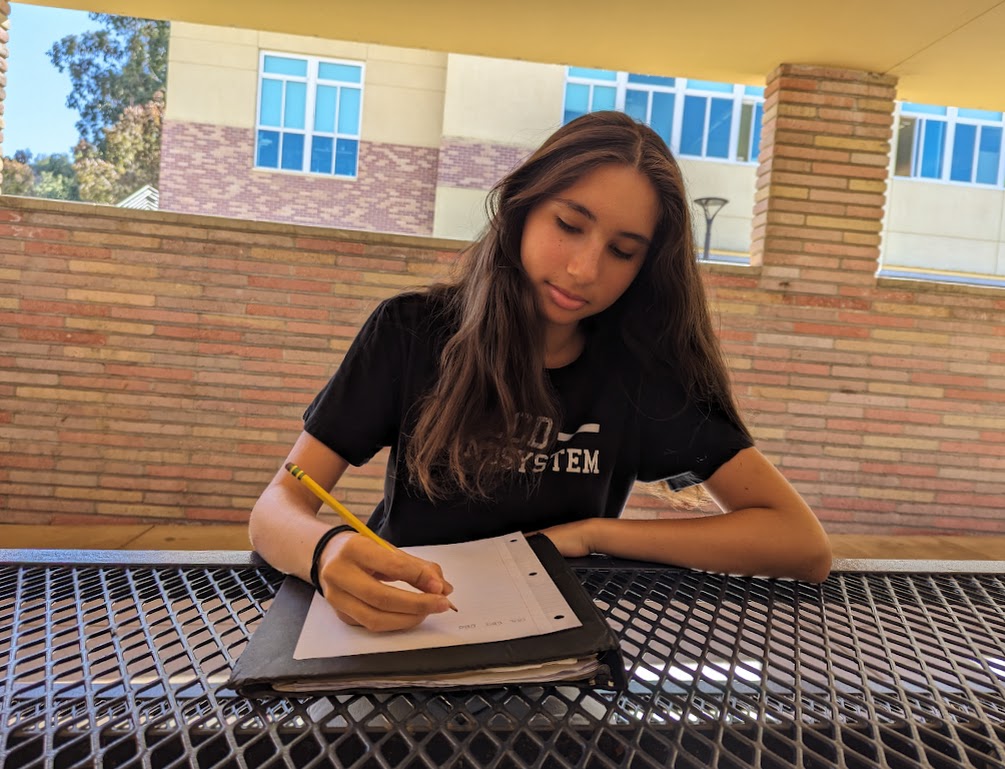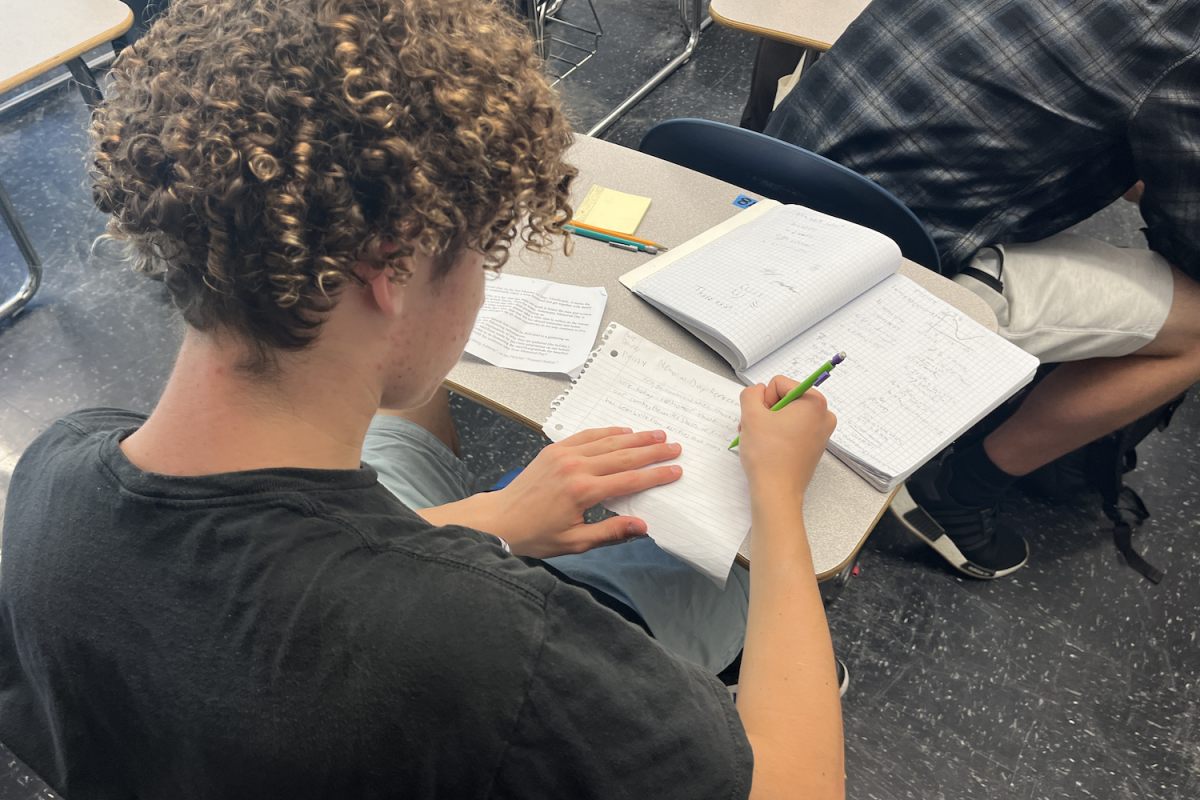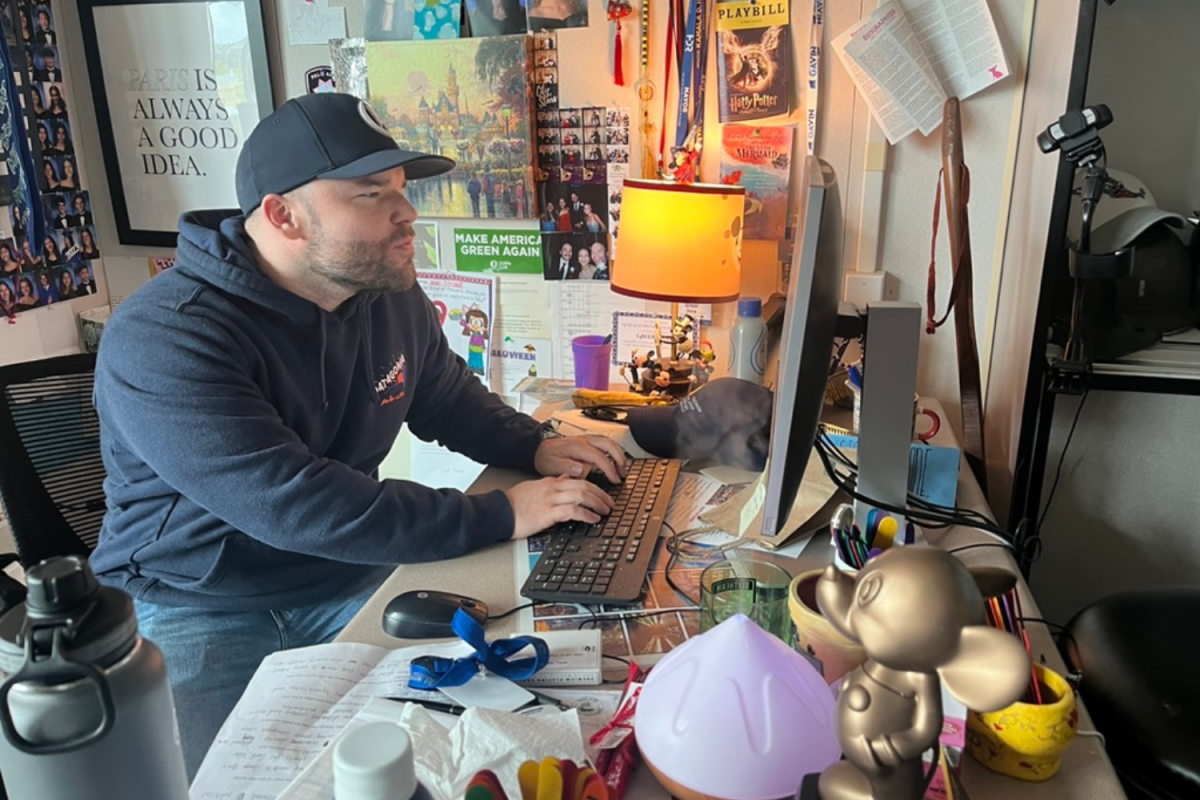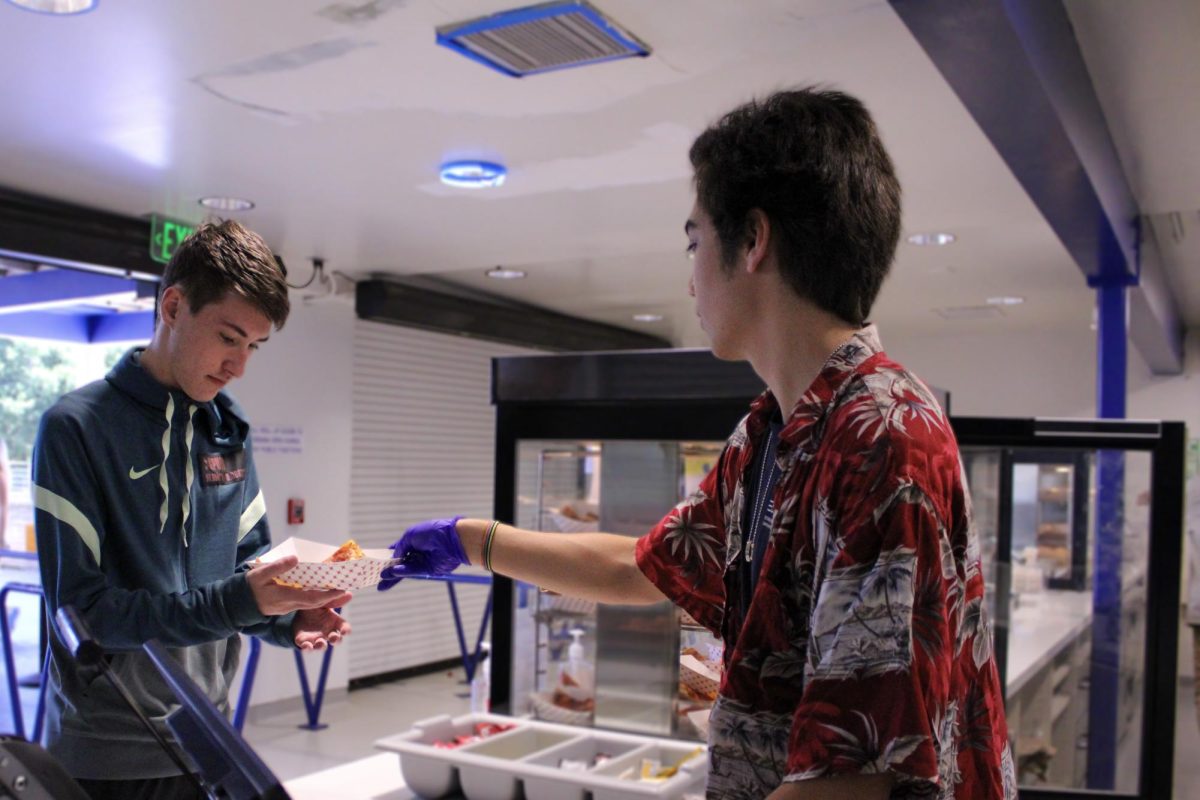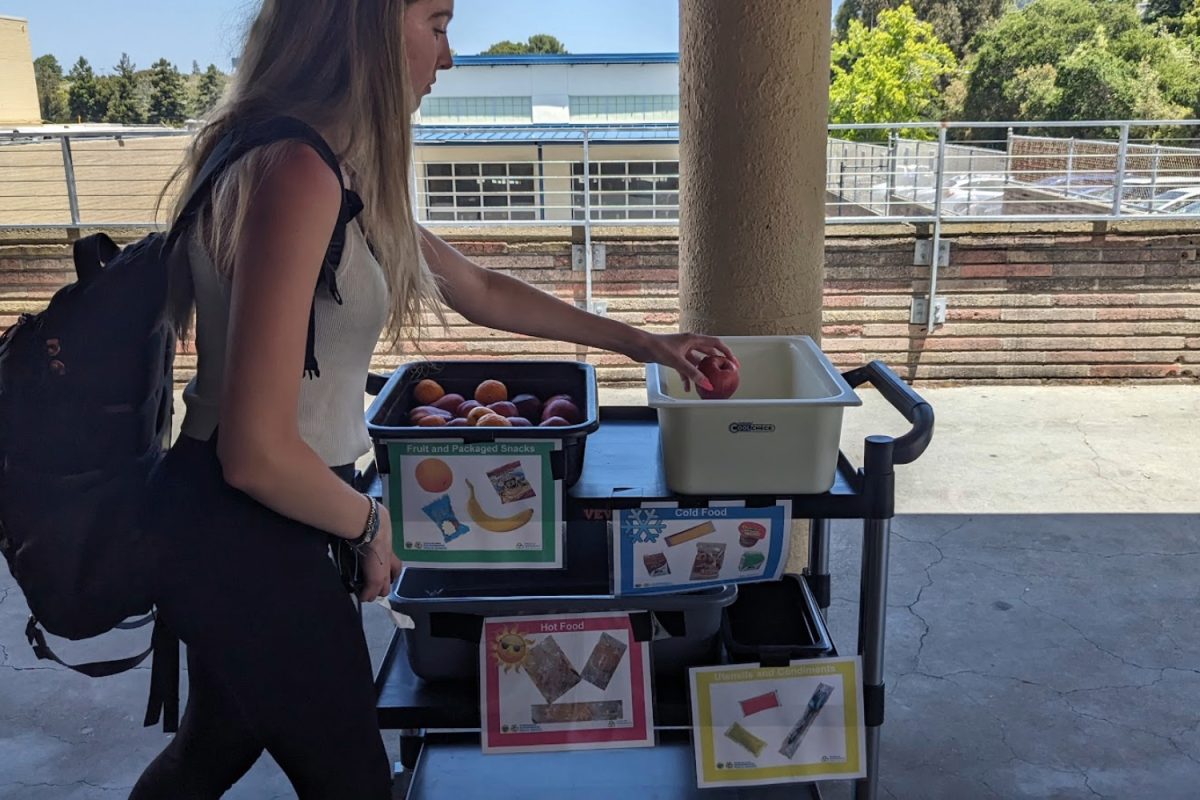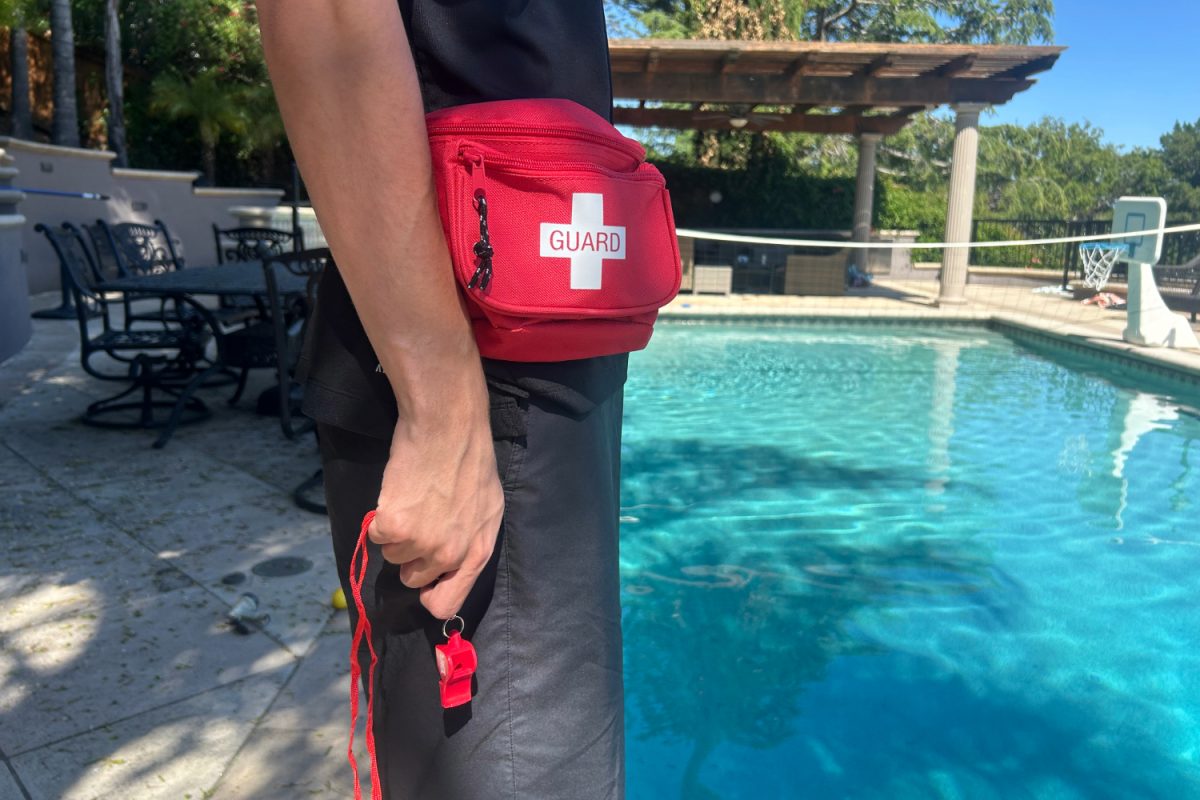College Board revealed two major changes for AP history tests in 2024. The tests now have a digital option and implemented a new rubric for the Document Based Question (DBQ).
In an announcement, the College Board explained that digital tests are available for 2024, and schools can make local decisions on which option to choose, so the Sequoia Union High School District has opted to go digital for all AP history tests.
Teachers and students expressed mixed opinions on this change. Some students are excited about the shift, like Carlmont High School junior Tala Youssef. She is taking AP U.S. History and shared that she thinks the tests going digital will be helpful.
“Even though I finished my essays in time last year, I think typing will make it a lot easier because it’s more efficient, and I’ll have time to review my essays at the end,” Youssef said.
However, some community members, like Carlmont AP U.S. History teacher Jarrod Harrison, felt less optimistic about the changes.
“I am not a fan of the digital tests or that the Sequoia District office is mandating them because this decision was made without any input from teachers,” Harrison said.
He explained that digital tests introduce complications with technology, like Wi-Fi loss and more opportunities for cheating. Thus, Harrison plans to largely keep his classroom approach the same.
“I will continue to ask students to handwrite essays, partially because I know some students may be tempted to cheat using online resources as some did during distanced learning,” Harrison said.
Carlmont AP U.S. and World History teacher Jayson Waller echoed similar sentiments to Harrison, explaining his hesitancy to move to computer testing because of cheating scandals he dealt with in the past.
Both teachers added that they would move towards computer-based testing in the second semester to prepare students but agreed that paper methods can be easier.
Other students, like sophomore Valeria Lehman in AP World History, expressed doubts about the new format.
“I prefer handwriting because I’m a really slow typer, so I feel like I might have a disadvantage with the digital tests,” Lehman said.
In addition to digital changes, the College Board modified the DBQ rubric for the official test.
For this essay, students are given seven documents and have to form an argument from the prompt supported by evidence from the documents.
In previous years, to receive all 7 points available, students had to use six documents, explain the Audience, Purpose, Context, or Point of view (APCP) of a document 3 times, and typically connect the topic to another historical event to earn a complexity point.
The rubric has changed to require 4 documents instead of 6 and 2 APCPs instead of 3. In addition, there are now alternative pathways to get the complexity point, which include writing a historical connection, explaining 4 APCPs, or using all 7 documents.
Many students are happy about the changes and think that different requirements will benefit their scores.
“I think condensing the amount of work that we have to do, these requirements make it a lot easier to manage my time and improve my writing,” Youssef said.
Lehman agreed with this point, and both added that they would continue adhering to the old rubric whenever possible to increase their chances of a good score.
“I think this new rubric seems like it will be easier in some ways for the students. There’s a more tangible pathway to getting the complexity point on the DBQ,” Waller said.
He explained that this clear rubric will help him give more specific feedback to students on what they should prioritize to earn the complexity point.
The changes for 2024 made some students a little nervous for the test, but the teachers are confident in their students’ abilities.
“Changes are a constant thing in life. So you just have to adapt to them as they come,” Waller said.
Harrison agreed with this statement.
“It might be hard, but I have faith in my students,” Harrison said.

